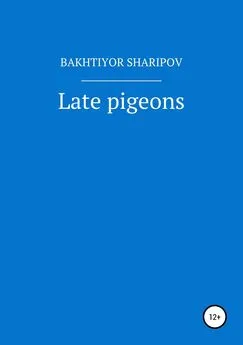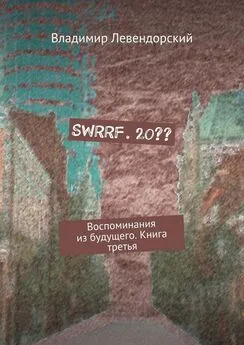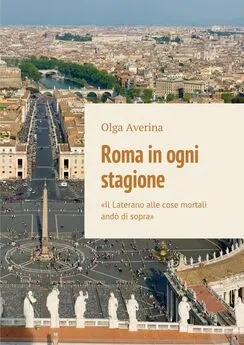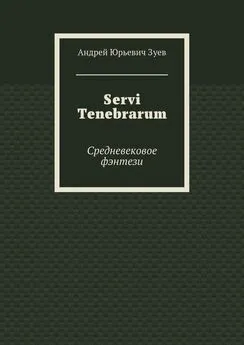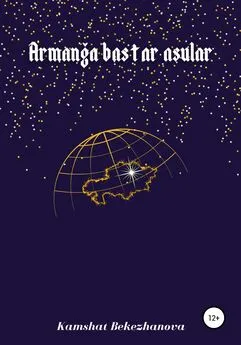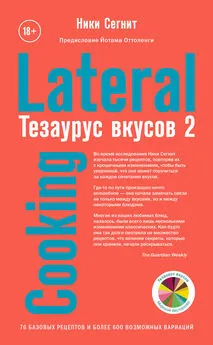Bakhtiyor Sharipov - Late pigeons
- Название:Late pigeons
- Автор:
- Жанр:
- Издательство:неизвестно
- Год:2019
- ISBN:нет данных
- Рейтинг:
- Избранное:Добавить в избранное
-
Отзывы:
-
Ваша оценка:
Bakhtiyor Sharipov - Late pigeons краткое содержание
Late pigeons - читать онлайн бесплатно ознакомительный отрывок
Интервал:
Закладка:
BAKHTIYOR SHARIPOV
Late pigeons
(a story)
“NAVRO’Z”
Publishing House
Tashkent – 2018
A story of vivid and sorrowful love
…The pigeons, spinning and dancing around the dome of Bibikhanum Mosque, don’t rest for a second, rolling like acrobats in pairs, one after another, and again they land on the dome. The next pair begin their dance. Their greyish and turquoise feathers, the emerald and sapphire ones on their wings and necks, sparkle in the rays of the sun, blazing the eyes.
But, Otabek, who saw Raykhona here for the first time, where he used to observe the pigeons’ dance with pleasure, not far from the stalls of bread in the bazaar, lost his calmness and his whole body was wrapped up with the fire of love, and he became crazy of her…
Now, “Majnun, who wanders in the lonely deserts, being thirsty, wants to drink, and drink and drink from the spring of Layli’s love…. Majnun consents to any difficulty of being thirsty, but being alone, without Layli, was driving him mad and sorrowful. Majnun desired Layli from the bottom of his heart, and his love was not far from him. His lips were thirsty of love, wanting to get drunk from their meeting. Everything was forgotten, everything was covered with astonishing easiness around, and there were only Layli with Majnun,left alone, in the universe.”
May this story, of vivid and sorrowful love of Bakhtiyor Sharipov, be blessed to all of us!
Yakhyo Togha
A member of Uzbekistan Writers’ Association
ISBN 978-9943-381-98-8
FOREWORD
Abdulla Kodiriy, a tremendous writer once wrote: “Since we entered into a new epoch, we follow the novelties of this new epoch in any direction, and thus we change in writing of stories, novels and epics, we feel the responsibility of introducing modern epoch “Takhirs and Zukhras”, “Chor Darveshs”, “Farkhads and Shirins” and “Bakhromgurs” to our people.”
This story tells about two hearts full of pure love, who struggled to reach their dreams decisively and born after independence of our country. And along with this, we have to mention that there have been a lot of illegal cases, eyewash conditions due to activities of dishonest and self-seeking people, who care for their welfare before those of others in society, being engrossed in gathering wealth with no respect to constitutional rights and human safety, guaranteed by law.
Otabek’s love, his other half, becomes a victim of this sanctimony in the story. Raykhona, with her name resembling her beautiful body, had a lot of dreams and plans in life.
Raykhona was a beauty of Samarkand, the only child of Masturakhon, her mother and Mansurjon, her father, a beloved daughter-in-law of Kimyokhon and Yusufbek, from Tashkent. Exploiting DAMAS as a public transport, a minivan model of car which doesn’t correspond to passenger transportation safety requirements, was the only factor of putting an end to not only Raykhona’s life but to many other innocent people in the late 20 years. This was the result of unlawful situations in the sector, executive negligence, indifference and irresponsibility for their duties.
After having realized that Raykhona, his wife, was the victim of this injustice and feeling responsibility before her soul Otabek decides to fight by himself against this unlawfulness in order prevail justice.
In the end of the story exploiting DAMAS as a public transport, which doesn’t correspond to passenger transportation safety requirements, becomes banned countrywide and justice triumphs.
…Otabek deliriously woke up. The pillow was wet from his sorrowful tears, but his heart was somehow calm and there was brightness in it. He said a prayer for the sole of his beloved reading from the holy Koran ayats and prayed....
The author
June 26, 2018
Every bird flies with its pair in the sky,
Pigeon with pigeon, and crow with crow.
1
Otabek was interested in learning the Japanese language from his childhood. He studied in the world languages university, studied tourism and got the profession of a guide-translator. He translates the works of famous Uzbek writers into Japanese, and delivers them to the Japanese departments of colleges, touristic companies and travelers on request and demand. Recently he has worked for two months in Japan by invitation of Tokyo Oriental Studies Center.
There were few tourists visiting Central Asia in Soviet Union period, and most of them even weren’t aware of existence of a country named Uzbekistan. And those who came to visit were accompanied by a translator from Moscow.
During the years of independence Uzbekistan became well known worldwide, and the number of tourists visiting increased. Most of these tourists are interested in historical masterpieces being preserved through ages in the cities of Bukhara, Samarkand and Khiva, and some of them are fond of ecotourism, bio tourism and the tourism of pilgrimage.
Otabek guides Japanese travelers who came to see ancient monuments of historical cities of Uzbekistan, tells the incidents, myths and legends about them.
Whenever Otabek comes to Samarkand he takes tourists to Siyab Bazaar, not far from a mosque called “Bibikhanum” amongst local people. He lets tourists go through the bazar and watches beautiful Galaosiyo bread laid in the stalls. Then he buys two loaves of bread and eats a piece with appetite observing the pigeons roaring and dancing over the dome of the mosque…
Pigeons…Otabek likes watching these birds fly in the sky. Even once he heard a friend of his bought one for decent amount and went there to see the bird. But the birds flying over the dome of Bibikhanum Mosque were somehow different from those of tamed ones…
So what is the difference? Their greyish and turquoise feathers, the emerald and sapphire ones on their wings and necks, sparkle in the rays of the sun, blazing the eyes. They do not rest for a second, they turn over like acrobats, and dance one after another and again land on the dome. The next pair of birds begin their dance and so on. Otabek never gets tired of watching them, he continues watching until the tourists finish their shopping and getting acquainted with oriental type of bazaar and come out. The Japanese also look at the pigeons and get admired, they start taking photos. Along with this, Otabek still wonders about the difference between these birds and domestic ones…
When Otabek guided his next group of tourists to Samarkand, as usual he sent them to Siyab Bazaar to do shopping and went to Galaosiyo bread stalls, bought bread and ate a piece of it eagerly and started watching the pigeons flying and landing on the dome of the mosque. After a while the tourist gathered in the agreed place.
“Is everybody here?”– Otabek said, and turned his head to the bread stalls unintentionally. Looked …. and ….turned aside as if his face was set on fire … After a while, he again looked back at the same place. There was a girl, with a friendly face among the women, and she was selling bread to customers. “Oh my God, the stall is full of bread, but everybody is waiting in a queue to buy from her” – he thought and started walking there involuntarily…
After recovering he saw the girl leaning towards him with two loaves of bread and smiling. Not knowing what to do he simultaneously put his hand in his pocket and gave the money to her. The girl took the required amount from the bunch and returned the rest.
“Please, keep the change!” – he said. “I don’t need the change,” – the girl replied, raising her eyebrows and continued: “Give it to gypsies over there, and they will pray for you…”
Otabek put the change in his pocket. At that moment he didn’t want to go away from there and wished that moment last forever.
“Have you heard the legend about bread?” – asked Otabek from the girl, not taking his eyes off the girl.
“You do want to tell a story?! Girls, listen here, your brother wants to tell a legend!” – said the girl joyfully.
“So… there was a king of Khorezm, called Mohammed Rakhimkhon Feruz, have you heard of him?”
“We know, so what?”
“This girl knows everything, you can’t beat her, the history expert!” – said the saleswomen of bread, without giving way to another – “She studies in a university and she knows five languages!”.
“That’s great! And I know two and will remain in debt for three other languages!”
“Do not confuse us! Your legend is over?! Then you are free, you keep us away from our business!” – said the girl again raising her eyebrows.
“All right! All right! I start the legend. That king – Mohammed Rakhimkhon Feruz had a good habit. He used to wander in the city with his statesmen and get informed about his citizens. One fine day the king went to the city with his courtiers. He had his special adviser – Hassan with him as well. Walking in a street the king’s eyes were stuck in a small house. A woman was baking bread in tandyr with a fabric coating in her hands.
Feruz stopped his horse for a while. In accordance with the traditions, at that time when a king passed by a herald would cry and beat the drums, all citizens would come outside from their houses leaving their household business, and as a sign of respect they would bow. And that woman in that small hose was still baking bread forgetting the world around her.
Realizing this the king became upset and said to his adviser Hassan:
“Look at that woman! How come that she is not aware of my presence. Is she deafmute, or doesn’t she know that the king passes by?”
“That woman is baking bread, oh my king!” – said the adviser.
Feruz became angry and said: “Which one is greater – the king or bread?”
Hassan said: “Of course, bread, my king! The country can live without a king, but without bread – never!”
Mohammed Rakhimkhon was impressed by this and continued on his way…”
After finishing his story Otabek realized that all the women and girls selling bread had been listening to him attentively.
“Thank you very much! Whoever respects bread will be respected in return!” – were the words of appraisal for the legend.
“What is your name?” – asked Otabek leaving the stalls.
“Do you always ask the name of the girls you meet?” – whispered the girl, trying not be heard by the surrounding people.
“N-n-no, I just….” – the boy replied with difficulty that he couldn’t say that was in his heart. “I just wanted to get acquainted. My name is Otabek, and I am from Tashkent, I am guest in your city. Do they scoff at the guests in your city?” – the boy straightened.
“Take the bread please, our girls sell bread not themselves, am I right Raykhon?” – all the girls burst into laugh. Otabek again peeked at the girl, her cheeks were flushing red and embarrassed. She didn’t say a word and turned to her friends to reprimand them. And Otabek also walked away towards Japanese tourists…
2
The sultanate created by Timur the Great in the 15 thcentury was recognized worldwide by rulers of that time, international relations and trade affairs were organized well. In course of time his heirs fought with each other for the sultanate, and destroyed a lot. As a result such a big kingdom fell. The rulers and kings who came afterwards divided Turkistan into three khanates and reigned independently as they could. In the middle of the 19 thcentury the Russian Czar conquered Central Asian three khanates with the motive of railway construction and seized the whole Turkistan. People, living here, became slaves because of dissociated rulers and landowners.
The red commissars, who came to the top of the government, disarticulated Turkistan, and turned Uzbek lands into cotton growing fields till the late 1990’s, they directed the subterranean and over ground treasures to the Kremlin. The real sons of the country were killed and banned with various excuses. The red structure, built on falsehood,recessed by itself and the 14 republics within the union declared their independence.
Читать дальшеИнтервал:
Закладка:
